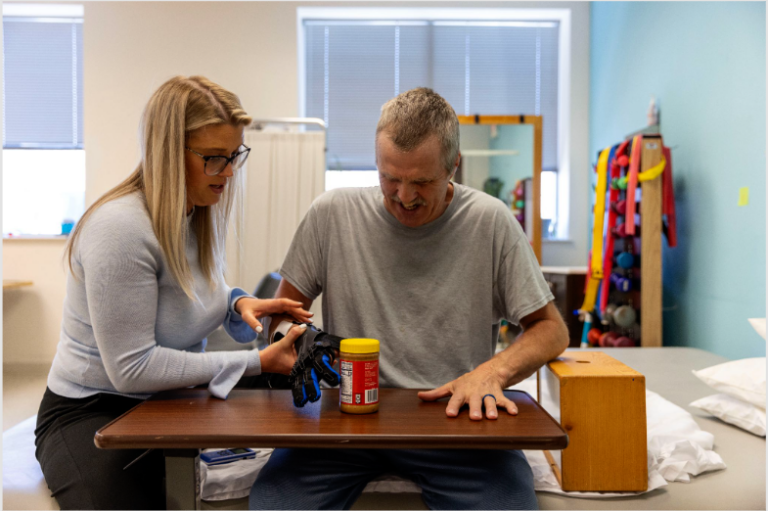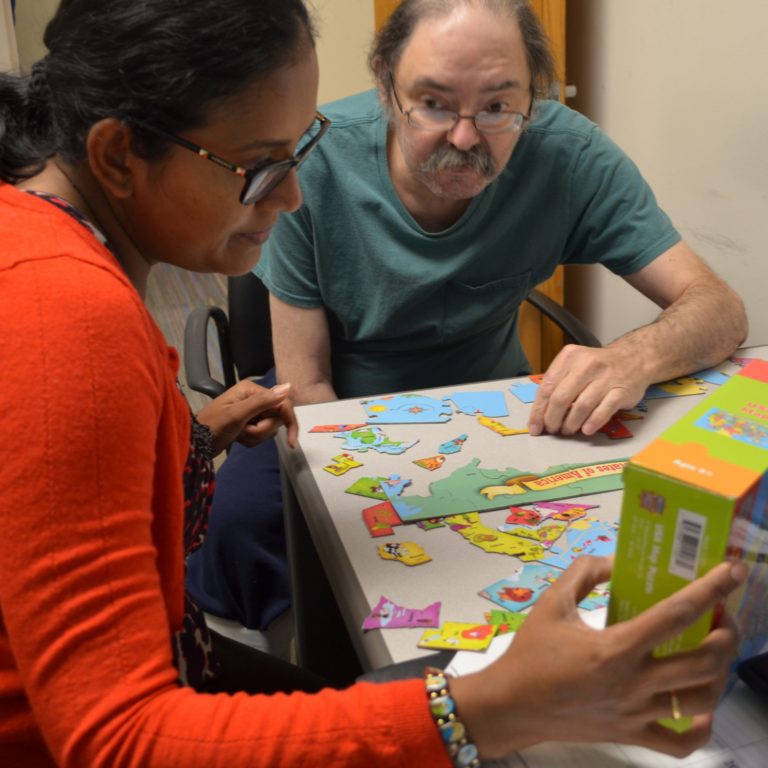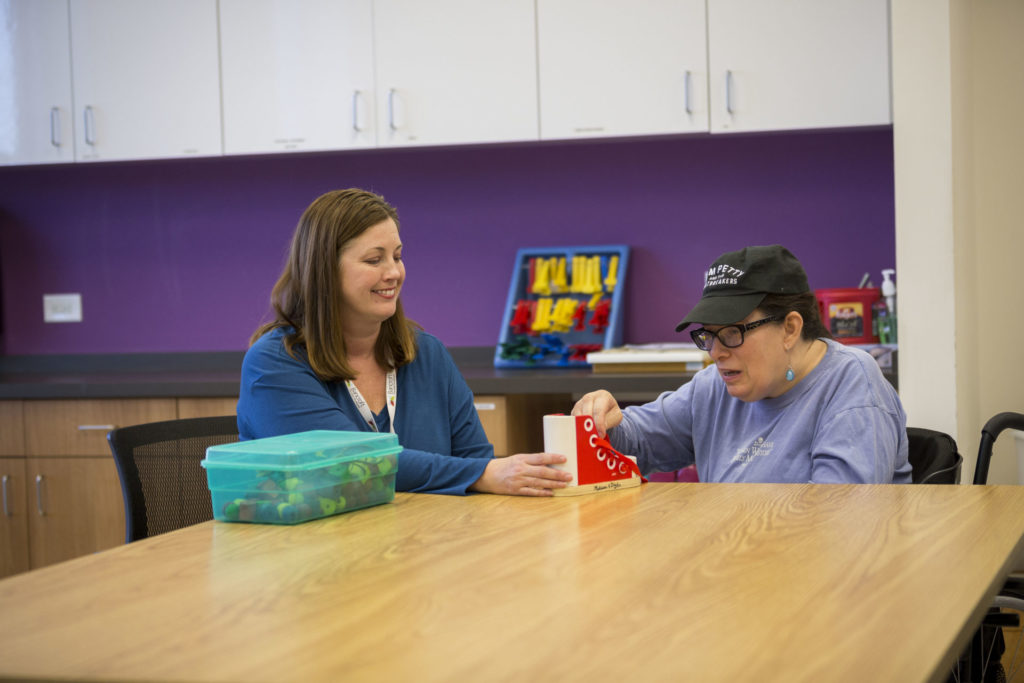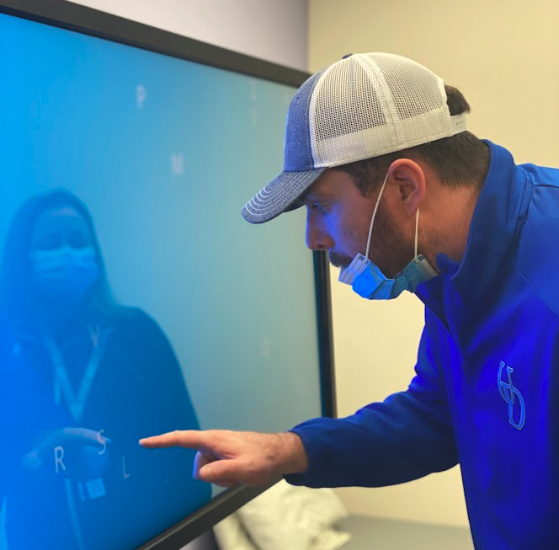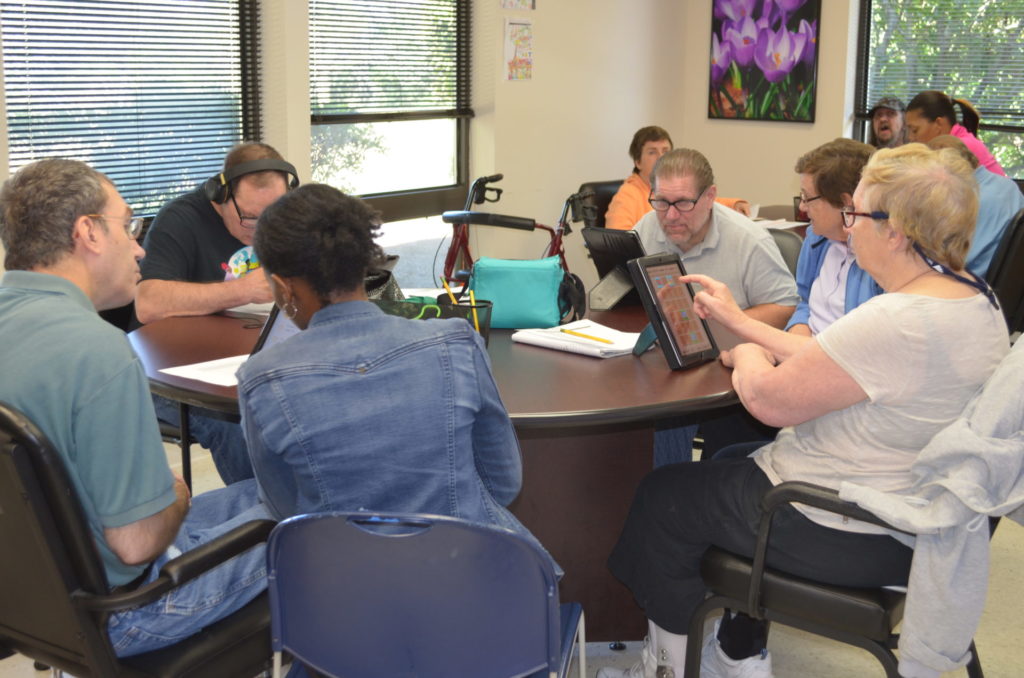Alzheimer’s Disease
Home » Conditions Treated » Alzheimer’s Disease
Overview
Alzheimer’s disease, other types of dementia, and mild cognitive impairment (MCI) are conditions that affect a person’s memory and mental abilities. However, these illnesses can vary greatly.
MCI, the mildest of these brain disorders, does not interfere with a person’s everyday activities. The person may simply have more memory problems than occur with normal aging. MCI does not always worsen, and it can even go away.
Dementia, on the other hand, is a group of conditions that cause more severe memory loss and thinking difficulties, which interfere with normal activities. These illnesses worsen over time, eventually affecting every aspect of a person’s life. Alzheimer’s disease is the most common form of dementia, currently affecting nearly 6 million Americans.
Each of these conditions affects the person’s loved ones, as well. But there is help and hope. Treatment can help people maintain their abilities and independence for as long as possible. Therapists can teach family members how to best care for their loved one. And proper testing can identify curable causes of a person’s MCI or dementia symptoms.
Overview
Alzheimer’s disease, other types of dementia, and mild cognitive impairment (MCI) are conditions that affect a person’s memory and mental abilities. However, these illnesses can vary greatly.
MCI, the mildest of these brain disorders, does not interfere with a person’s everyday activities. The person may simply have more memory problems than occur with normal aging. MCI does not always worsen, and it can even go away.
Dementia, on the other hand, is a group of conditions that cause more severe memory loss and thinking difficulties, which interfere with normal activities. These illnesses worsen over time, eventually affecting every aspect of a person’s life. Alzheimer’s disease is the most common form of dementia, currently affecting nearly 6 million Americans.
Each of these conditions affects the person’s loved ones, as well. But there is help and hope. Treatment can help people maintain their abilities and independence for as long as possible. Therapists can teach family members how to best care for their loved one. And proper testing can identify curable causes of a person’s MCI or dementia symptoms.
Contact Us
To make a referral or schedule an appointment call 844-234-8387
Types of Dementia
Many diseases can cause dementia, but the most common forms are:
This condition can start with mild memory loss, and gradually progress to more severe problems with thinking and functioning. Symptoms usually start after age 60, but an “early onset” form can occur at younger ages. Having mild cognitive impairment may increase an older person’s risk of Alzheimer’s.
This condition is related to problems with blood vessels, such as a major stroke or heart disease, or risk factors like obesity, high cholesterol, high blood pressure, smoking, and diabetes. Vascular dementia is marked by slowed thinking, difficulty paying attention, and decreased abilities to plan, organize, and solve problems.
This disorder can appear similar to Parkinson’s disease, as both conditions can cause tremors (shaking). The person’s blood pressure can fluctuate, which can lead to falls. Hallucinations are also common – such as thinking someone is in the room who’s not there.
With this illness, behavioral changes often occur first. The person may become impulsive or act out, or they may lose interest in their usual activities. They may also have trouble speaking or understanding others, and their speech may slow. This condition is more common in middle age than in old age.
This is a combination of two or more types of dementia. For example, as many as one-third of people with Alzheimer’s also have vascular dementia. Other diseases can also cause dementia, especially in their advanced stages. Such illnesses include multiple sclerosis, Parkinson’s disease, and Huntington’s disease. People with HIV/AIDS may also develop MCI or dementia, especially if they don’t take antiviral medications.
Causes of Dementia and Mild Cognitive Impairment
The causes of dementia and MCI can vary and are not yet fully understood. Alzheimer’s disease, for example, is likely caused by a combination of genetic, environmental, health and lifestyle factors. Frontotemporal dementia may also have a genetic (inherited) component.
Vascular dementia appears related to conditions that harm the blood vessels, including heart disease, stroke, high blood pressure, smoking, high cholesterol, diabetes and obesity.
Memory and thinking difficulties can also be caused by certain medications or other conditions. In such cases, these problems can sometimes be treated or even reversed. Treatable issues that can cause dementia-like symptoms include stress, anxiety, or depression; untreated obstructive sleep apnea; certain vitamin deficiencies; excessive alcohol intake; blood clots, tumors, or infections in the brain; head injury; a fluid buildup in the brain; and thyroid, kidney, or liver problems.


Symptoms
Symptoms of Dementia and MCI
Symptoms of MCI generally include mild memory problems that don’t interfere with daily activities. These may include frequently losing or misplacing items, forgetting to attend events or appointments, and having more trouble coming up with words compared to others of the same age. Some people may also experience movement difficulties and problems with their sense of smell.
With Alzheimer’s and other dementias, symptoms gradually worsen, as more areas of the brain are affected over time. Symptoms can include:
- Trouble coming up with words
- Difficulty with vision/spatial perception (which can lead to falls)
- Impaired reasoning or judgment
- Wandering and getting lost
- Problems handling money and paying bills
- Repeating questions or statements
- Taking longer to complete normal daily tasks
- Personality and behavior changes
- Increasing memory loss and confusion
- Difficulty recognizing loved ones
- Inability to learn new things or cope with new situations
- Inability to do multistep tasks such as bathing and dressing
- Hallucinations, delusions, or paranoia
- Impulsive behavior
- Loss of ability to communicate*
- Complete dependence on others*
*Symptoms of late-stage dementia
With Lewy body dementia, another symptom can include tremors or shaking. With frontotemporal dementia, other symptoms can include slowed speech, and difficulty talking or understanding language.
When to See a Doctor
If you notice any of the symptoms listed above, make sure to see a doctor. They may be signs of a serious, yet treatable, illness.
Evaluation
It’s important to be tested and get an accurate diagnosis in order to get the right care. An early diagnosis also provides more time for patients and families to plan for future needs.
A neurologist will conduct a neurological examination and ask about the person’s medical history. The doctor may also order brain scans and laboratory tests.
A neuropsychological evaluation is usually needed to diagnose dementia or MCI. This test assesses the person’s mental abilities and mood, including attention and concentration, learning and memory, planning and abstract thinking, language and communication, motor and sensory functions, academic skills, and other intellectual abilities. The test is done through a questionnaire and typically takes four to six hours.
Treatment
Although there is no cure for Alzheimer’s disease and other types of dementia, certain treatments can help. Medications can reduce symptoms, and various therapies can help the person function better for a longer period.
Lifestyle changes – such as losing excess weight, exercising, and managing diabetes – can also slow the progress of vascular dementia and MCI, and help prevent a stroke or other serious problems.
With both Alzheimer’s disease and other types of dementia, psychotherapy and counseling is available to family members. This type of support can help caregivers and individuals with dementia by providing psychoeducation about dementia, and recommendations/support with the management of cognitive, emotional and behavioral symptoms.




